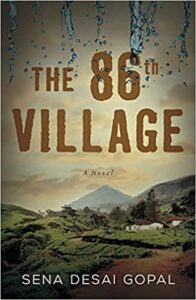The CrimeReads editors select the month’s best debut crime fiction.
*

Samantha Jayne Allen, Pay Dirt Road
(Minotaur)
A young woman returned home to a small Texas town, adrift, working waitressing shifts and waiting for the next piece of life to come rushing along, joins up with her supposedly retired grandfather as a private investigator. That’s the intriguing setup to this powerful new novel from Samantha Jayne Allen, a major new talent on the crime fiction scene, whose evocative descriptions of the Texas landscape and brooding atmospherics make for a new kind of noir you won’t soon forget. Get a copy of Pay Dirt Road now and expect to be hearing a lot more from Samantha Jayne Allen in the future. –Dwyer Murphy, CrimeReads Editor-in-Chief

Grace D. Li, Portrait of a Thief
(Tiny Reparations)
There’s a ton of good art thrillers coming out this year, but Portrait of a Thief is that rare, perfectly executed heist that reminds us why we love to pair art and crime. When thieves take 23 priceless works of Chinese art from Harvard’s (now-renamed) Sackler Gallery, a nearby Chinese-American student witnesses the crime, and finds himself invited to join a gang dedicated to returning art to its nations of origin or otherwise liberating the stolen artifacts of colonialism. Which means this book will be very, very, good. –Molly Odintz, CrimeReads Senior Editor

Adam Oyebanji, Braking Day
(Daw)
This one’s for the scifi fans! (Those who also want some mystery, that is.) Braking Day takes place on a vast generation ship in which colonists agree to live their whole lives, knowing that only their offspring will live to see their new planet. A young engineer is torn between his duty to family and his need to solve a mystery: a helmetless girl, floating in space, who only he can see, and who appears to be alive. –MO

Soon Wiley, When We Fell Apart
(Dutton)
In this moody noir set in Seoul, a Korean-American expat goes searching for answers when the university student he’s been hooking up with dies by suicide. Intercut are passages that tell the story from the dead woman’s point of view, whose inner life is far more rich and complex than those around her could acknowledge, even as they each tried to project on her an image based from their own wants and needs. –MO

Sena Desai Gopal, The 86th Village
(Agora)
The milieu of Sena Desai Gopal’s excellent debut novel is a perfect fit in the long, twisted lineage of noir fiction: land in contention, real estate corruption, industrial interests, and a town on the verge of crisis. In Southern India, eighty-six villages are going to be drowned in a planned submersion that puts locals into conflicts with powerful mining interests and a complicated, exploitative political system. When a mysterious orphan shows up in one of those villages, a new wrinkle emerges, and the secrets to her past seem to promise answers in the present. Like with all good noir, nothing is ever simple when it comes to the clash of past and present. –DM

Susan Rigetti, Cover Story
(William Morrow)
Cover Story benefits from the interest in Anna Delvey, the con woman who ran game on some of the richest and most self-important people in New York City (clarification: if you are a rich person in New York City you probably have a high opinion of yourself so please excuse the tautology). What sets this novel apart is Rigetti’s interest in the ways of the confidence scammer: it’s not only about a particular con artist but an examination into why people fall for scams, how the con earns the confidence of a mark, and why as long as there are rich, gullible people, there will be poor, clever people who gain entry into the lives of the rich in order to steal their money and their dignity. –Lisa Levy, CrimeReads Contributing Editor

















